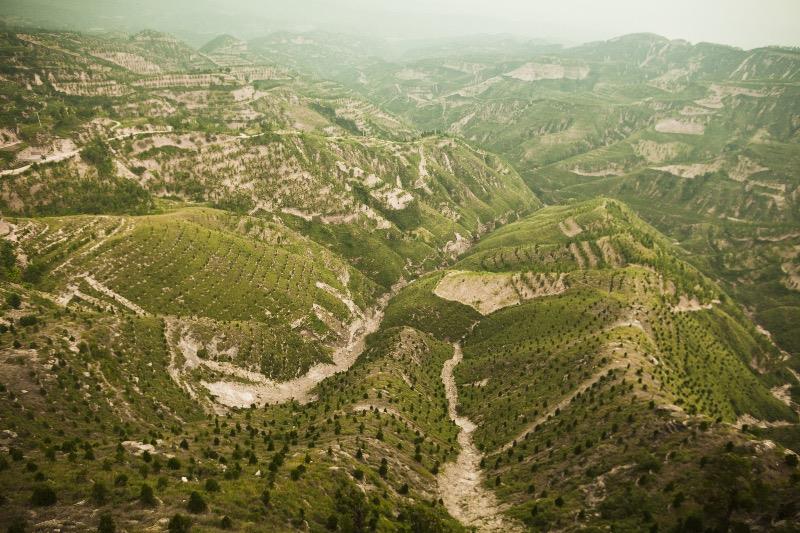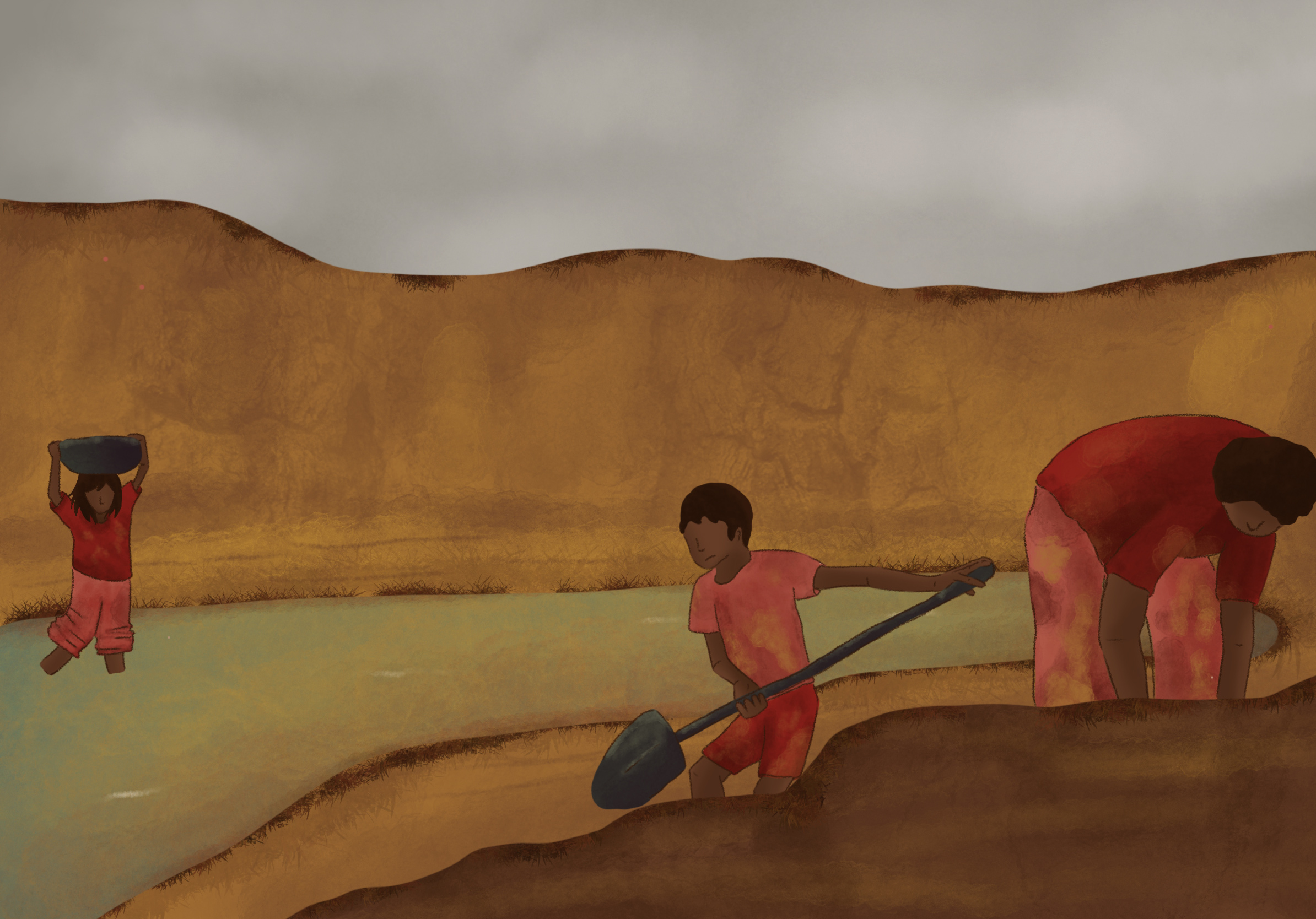
China can save the Earth
Here is why
by Naomi Clark-ShenLife on Earth is collapsing. China is often cited as the ‘bad guy’, with its polluted air, taste for endangered species, and huge fishing fleets. But experts now recognise that China has the potential to save the planet. What has this country done to sway popular opinion and prove itself?
China is an unstoppable force in the clean energy movement. It produces more electricity with renewable energy than any other country, and has some of the biggest solar farms on Earth—one of which is shaped like a giant panda. Additionally, in 2017 the country invested a record US$44 billion in clean energy overseas, and the Belt and Road Initiative has so far driven US$8 billion of solar equipment exports to other countries. These investments will help to reduce global greenhouse gas emissions that are causing climate change.
China also has the largest market for electric vehicles. The country buys over half of the world’s new electric cars and is the largest manufacturer of electric buses—putting around 27,000 on roads around the world. Shenzhen has a fleet of over 16,000 electric buses. Its taxis are almost completely electric too. In fact, the country has plans to completely end the sale of fossil-fuel powered cars in the near future.
In 2018, China also invested US$42.8 billion in green bonds, making them the second largest green bond market in the world. Green bonds promote investment in projects that address climate change—such as re-forming the energy and transport sector.
But one of the most unexpected announcements came when China revealed its plan to halve its meat consumption, a move which could reduce greenhouse gas emissions by one billion tonnes by 2030. Globally, almost 15 percent of planet-warming emissions come from the meat industry, and China accounts for almost one-third of the world’s meat consumption.
In 2015, China shocked the world when it announced that its ivory market would be shut down because of plummeting wild elephant numbers. As the biggest consumer of legal and illegal ivory in the world, the impact on culture and the economy was to be huge. But China was sending a message: “the life of elephants is more important than the ivory carving culture.”
China also has strict protection laws for its own endangered species. Killing a giant panda carries a hefty penalty—a minimum of ten years in jail, confiscation of property, and in severe cases a life sentence or even the death penalty. Additionally, around 70 percent of giant pandas live within designated nature reserves. The Chinese government’s commitments have paid off—the giant pandas' population has increased by nearly 17 percent over the past decade.
While these successes must be celebrated, China admittedly has a long way to go. Their recently amended Wildlife Protection Law explicitly allows many wild animals to continue being used in food and medicine. It also permits wild animals like tigers to be used for circus performances. In 2018, they shocked the world when they lifted the ban on the trade of rhino horn and tiger parts—a move they have since postponed following a storm of protests.
Nevertheless, there is a growing animal protection movement in China. Public awareness around such issues is reportedly increasing, and the country now has more than 200 registered organisations advocating for wildlife protection and animal welfare—compared to just one in 1992.
China has planted more trees than any other country in the world. Their reforestation efforts aim to restore forests, combat desertification, and reduce the risk of flash flooding. By 2015, China had planted an area of forest three times the size of the UK.
The country has spent over US$100 billion on reforestation since the 1990s, in part due to their Grain for Green programme which pays farmers to transform their cropland into forests.

Reforested mountains in Shanxi province, China.
But an assessment of China’s reforestation efforts reveals trouble in paradise. Most cropland that has been "reforested" are too simple in structure and use only one type of tree. This is of little value to wildlife which thrives in complex, multi-species forests. Researchers have since urged the Chinese government to focus on natural regeneration, where land is left untouched for forests to grow naturally.
Regardless, China is taking the lead in greening the planet, and its reforestation programme has contributed to the absorption of over 700 million tonnes of carbon, contributing to the fight against climate change.
China is the world’s biggest producer and consumer of fish—producing 40 percent and consuming 38 percent of the world’s fish. This has had a dire effect on the South China Sea, their main fishing ground, where fish numbers have plummeted to just 5 to 30 percent of levels in the 1950s.
Fisheries are notoriously difficult to regulate, but China has been trying to do so for many years. Since 1995, they have banned fishing for two to three months during the summer to give fish populations a chance to recover. In 2017, they imposed the strictest ban yet—increasing the length of closure to four and a half months in some places.
There are however, concerns surrounding the increase of fishing in distant waters such as in Africa, and overfishing in national waters post-closure, to compensate for losses experienced during the summer fishing ban.
But China continues to make substantial commitments to fisheries management. In 2016 they announced a tough plan to reduce the total yearly catch of coastal fisheries from over 13 million tonnes to under 10 million tonnes in line with sustainability calculations.
China ranks number one in the world for volume of plastics released into global waters. However, the government has taken several notable steps to try and rectify the issue.
In the early 2000s, China’s citizens were using three billion plastic bags each day. The country became littered with these bags. So in 2008, China became one of the first few countries in the world to ban plastic bags. Shops, supermarkets, and sales outlets could no longer hand out free plastic bags, and ultra-thin plastic bags less than 0.025mm thick were outlawed.
Many shoppers switched to cloth bags and baskets instead. One year after the ban, supermarkets reported a 66 percent reduction in plastic bag usage. That same year, regulators inspected around 250,000 stores and handed out US$293,000 worth of fines to stores which failed to comply with the law.


Because of excessive pollution, plastic bags can no longer be given out for free and shoppers now bring their own re-useable bags to supermarkets.
For decades, China has also been the world’s recycling centre. In 2016, half of all global plastic waste intended for recycling was sent to China because of its more advanced infrastructure and progressive environmental policies related to the circular economy. But too much of the plastic sent their way could not be recycled and ended up in landfills, affecting their environment. So in 2018, China banned such imports, a move which could reduce up to 13 percent of their plastic waste load and force countries to finally take ownership of their own problems.
When it comes to environmental protection, China is a land of extremes. They are one of the biggest culprits when it comes to environmental degradation (they do, after all, have the largest population in the world) but when they tackle these problems they mean business. Their no-nonsense initiatives and policies have sent shockwaves around the world.
Considering this, while China still has much to improve on, they have perhaps more potential than any other country to take charge, and bring the Earth back from its state of collapse.










